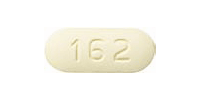Ofloxacin Interactions
There are 515 drugs known to interact with ofloxacin, along with 10 disease interactions, and 1 alcohol/food interaction. Of the total drug interactions, 114 are major, 326 are moderate, and 75 are minor.
- View all 515 medications that may interact with ofloxacin
- View ofloxacin alcohol/food interactions (1)
- View ofloxacin disease interactions (10)
Most frequently checked interactions
View interaction reports for ofloxacin and the medicines listed below.
- Acetylsalicylic Acid (aspirin)
- Amoxil (amoxicillin)
- Aspir 81 (aspirin)
- Augmentin (amoxicillin / clavulanate)
- Azithromycin Dose Pack (azithromycin)
- Benadryl (diphenhydramine)
- Chlorpheniramine (Allergy) (chlorpheniramine)
- Cipro (ciprofloxacin)
- Claritin (loratadine)
- Co-trimoxazole (sulfamethoxazole / trimethoprim)
- Flonase (fluticasone nasal)
- Ginkgo Biloba (ginkgo)
- Lipitor (atorvastatin)
- Lyrica (pregabalin)
- Metoprolol Succinate ER (metoprolol)
- MiraLAX (polyethylene glycol 3350)
- Ozempic (semaglutide)
- Paracetamol (acetaminophen)
- Tylenol (acetaminophen)
- Valproate Sodium (valproic acid)
- Vitamin B Complex 100 (multivitamin)
- Vitamin B1 (thiamine)
- Vitamin B12 (cyanocobalamin)
- Vitamin B6 (pyridoxine)
- Vitamin C (ascorbic acid)
- Vitamin D3 (cholecalciferol)
- Vitamin K (phytonadione)
- Xanax (alprazolam)
- Zinc (zinc sulfate)
- Zyrtec (cetirizine)
Ofloxacin alcohol/food interactions
There is 1 alcohol/food interaction with ofloxacin.
Ofloxacin disease interactions
There are 10 disease interactions with ofloxacin which include:
- colitis
- CNS disorders
- myasthenia gravis
- peripheral neuropathy
- QT interval prolongation
- tendonitis
- crystalluria
- diabetes
- hemodialysis
- renal dysfunction
More about ofloxacin
- ofloxacin consumer information
- Compare alternatives
- Pricing & coupons
- Reviews (18)
- Drug images
- Side effects
- Dosage information
- During pregnancy
- Drug class: quinolones and fluoroquinolones
- Breastfeeding
- En español
Related treatment guides
Drug Interaction Classification
| Highly clinically significant. Avoid combinations; the risk of the interaction outweighs the benefit. | |
| Moderately clinically significant. Usually avoid combinations; use it only under special circumstances. | |
| Minimally clinically significant. Minimize risk; assess risk and consider an alternative drug, take steps to circumvent the interaction risk and/or institute a monitoring plan. | |
| No interaction information available. |
See also:
Further information
Always consult your healthcare provider to ensure the information displayed on this page applies to your personal circumstances.


